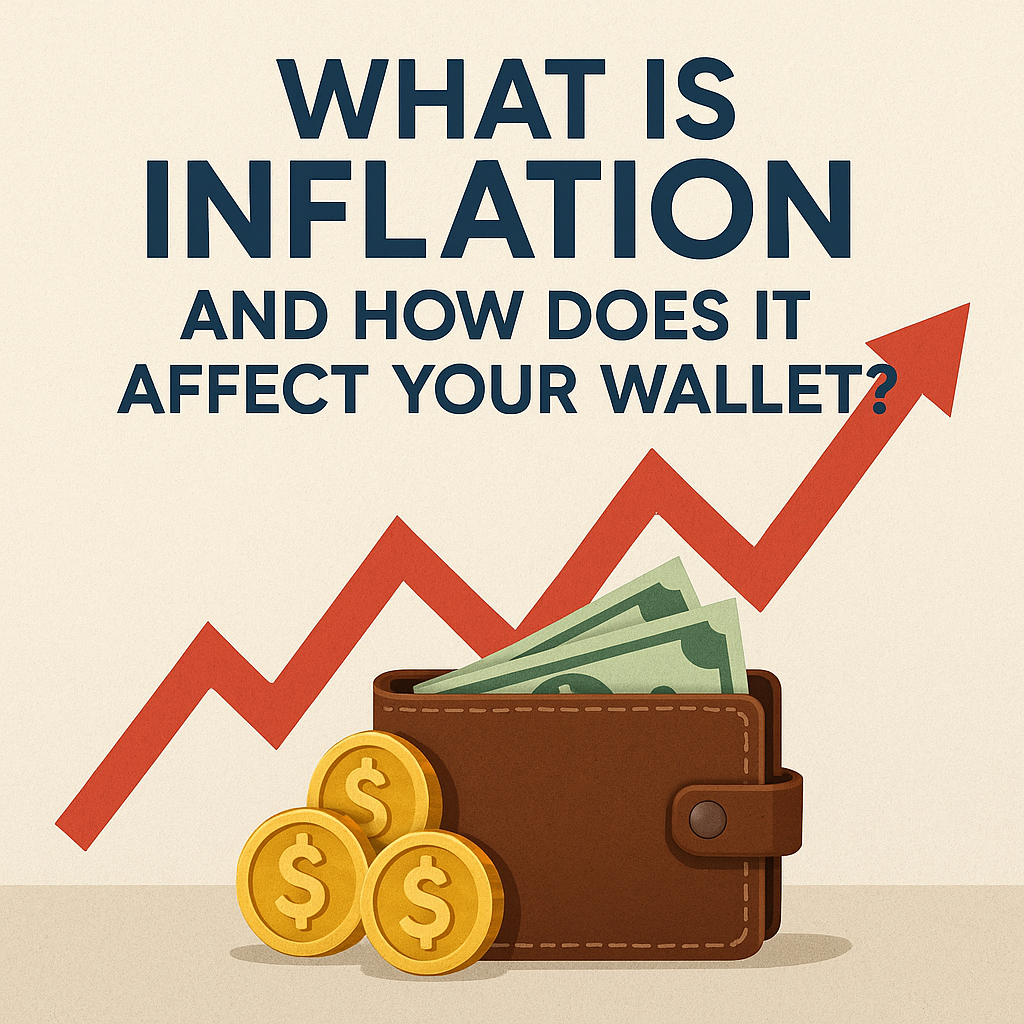Inflation is a term that often comes up in news headlines and financial discussions, but what exactly is it? More importantly, how does inflation impact your everyday life and your financial health?
In this guide, we’ll break down what inflation really means, why it happens, and most importantly, how it affects your wallet—plus practical tips to protect your money when inflation rises.
🔍 What Is Inflation?
Inflation is the rate at which the general level of prices for goods and services rises over time. When inflation occurs, each dollar you have buys less than before because prices go up.
For example, if inflation is 3% per year, something that costs $100 today will cost about $103 next year.
📈 Why Does Inflation Happen?
Several factors can cause inflation, including:
- Demand-pull inflation: When demand for goods and services exceeds supply, prices rise.
- Cost-push inflation: When production costs increase (like higher wages or raw material prices), companies pass those costs to consumers.
- Monetary policy: When central banks increase the money supply, it can reduce the value of currency, leading to inflation.
Inflation is a normal part of a growing economy but can become problematic if it rises too quickly or unpredictably.
💸 How Does Inflation Affect Your Wallet?
1. Purchasing Power Declines
As prices increase, the money in your wallet buys less. If your income doesn’t rise with inflation, you effectively have less spending power.
2. Cost of Living Goes Up
Expenses like groceries, gas, rent, and utilities can all become more expensive, making it harder to cover your monthly budget.
3. Savings Lose Value
Money saved in low-interest accounts may not keep up with inflation, meaning the real value of your savings decreases over time.
4. Debts Can Be Easier to Pay Off
On the flip side, if you have fixed-rate debt (like a mortgage), inflation can make paying back loans easier in “cheaper dollars” over time.
🛡️ How to Protect Yourself from Inflation
1. Invest Wisely
Investments like stocks, real estate, and inflation-protected securities (TIPS) often outpace inflation and help grow your wealth.
2. Boost Your Income
Seek raises, side hustles, or new opportunities that increase your earnings to keep up with rising costs.
3. Keep an Emergency Fund
Having cash reserves helps you manage unexpected price hikes or economic changes.
4. Reduce Debt
Paying off high-interest debt frees up money that might otherwise be squeezed by inflation.
5. Shop Smart
Look for sales, use coupons, and buy in bulk to reduce the impact of price increases on your daily spending.
📊 Understanding Inflation Rates
Central banks, like the Federal Reserve in the U.S., aim for moderate inflation around 2% annually. This encourages spending and investment without letting prices spiral out of control.
However, hyperinflation (extremely rapid inflation) can devastate economies, while deflation (falling prices) can signal economic trouble.
💡 Quick Inflation Facts
- Inflation reduces the real value of cash savings over time.
- Moderate inflation is normal and signals economic growth.
- Long-term investments are a common hedge against inflation.
- Keeping your income growing with or faster than inflation is crucial for financial stability.
📌 Final Thoughts
Inflation is a natural part of the economy that affects everyone’s wallet in subtle but important ways. By understanding inflation and adjusting your financial habits, you can protect your purchasing power and keep your finances healthy.
For more practical money advice and financial education, visit MoneyNest.blog — your guide to smarter financial decisions.

